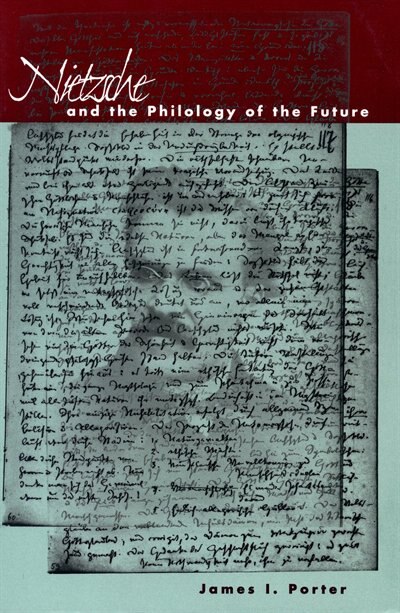Home
Nietzsche and the Philology of the Future by James I. Porter, Hardcover | Indigo Chapters
Loading Inventory...
Indigo
Nietzsche and the Philology of the Future by James I. Porter, Hardcover | Indigo Chapters
From James I. Porter
Current price: $245.00


Indigo
Nietzsche and the Philology of the Future by James I. Porter, Hardcover | Indigo Chapters
From James I. Porter
Current price: $245.00
Loading Inventory...
Size: 1 x 9 x 1
*Product information may vary - to confirm product availability, pricing, shipping and return information please contact Indigo
Drawing on Nietzsche's prolific early notebooks and correspondence, this book challenges the polarized picture of Nietzsche as a philosopher who abandoned classical philology. It traces the contours of his earliest philological thinking and opens the way to a fresh view of his later thinking. The book's primary aim is to displace the developmental logic that has been a controlling factor in Nietzsche's reception, namely the assumption that Nietzsche passed from a precritical phase to an enlightened phase in which he liberated himself from metaphysics. A subsidiary aim is to decenter the view that fastens onto The Birth of Tragedy as a dramatic turning point in Nietzsche's thought. For Nietzsche, questions about the religion, art, and history of the classical world are bound up with fundamental questions about knowledge, culture, history, and the status of the subject. From his early writings, Nietzsche finds it difficult to separate questions about modernity from those about antiquity. Nor are the problems of classical philology ever far from his mind, even toward the end of his career. By showing how frequently the ""later"" Nietzsche appears in the early writings, the author hopes to provoke reflection on the adequacy of current characterizations of Nietzsche, and not just to raise questions about the periodization of his life and thought. The book traces Nietzsche's efforts, throughout his career, to determine the ways in which philosophy and philology are symptomatic of modern cultural habits, ideologies, and imaginings. In the form of a cultural anthropology, he may even have outlined the most trenchant model still available for confronting the ghostly specters that haunt Western society. Nietzsche's incessant preoccupation with the symptomatology of the modern subject-its ailments, its allusions, and the signs of its irrepressible presence-unifies his oeuvre more than any other single question. The author argues that Nietzsche arrived at this inquiry from a philological perspective, according to which subjective identity is viewed as part of a historical process. Embodied in practices, habits, and institutions, these inheritances of culture-of which classical antiquity is a crucial part-undergo the vicissitudes of transmission, decipherment, reconstruction, reception, and especially falsification (whether through unwilled or deliberate misunderstanding). All of these factors are intimately bound up with the ways in which subjects form themselves. | Nietzsche and the Philology of the Future by James I. Porter, Hardcover | Indigo Chapters








